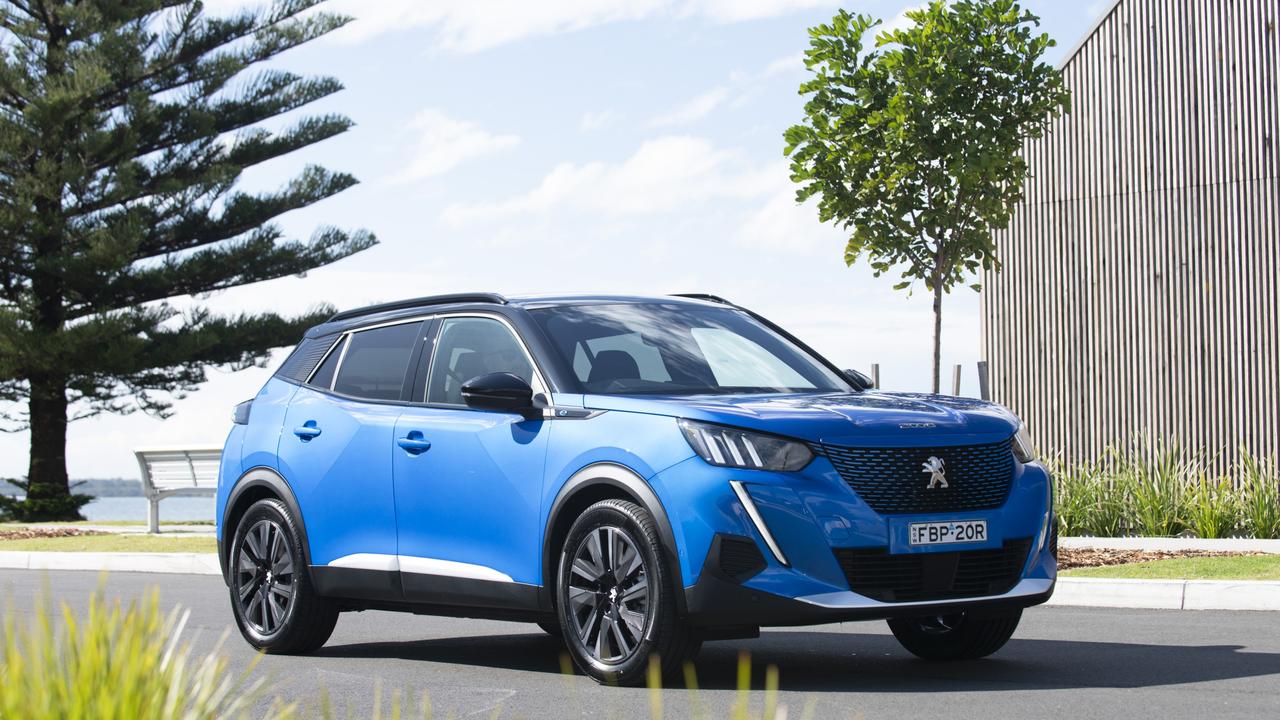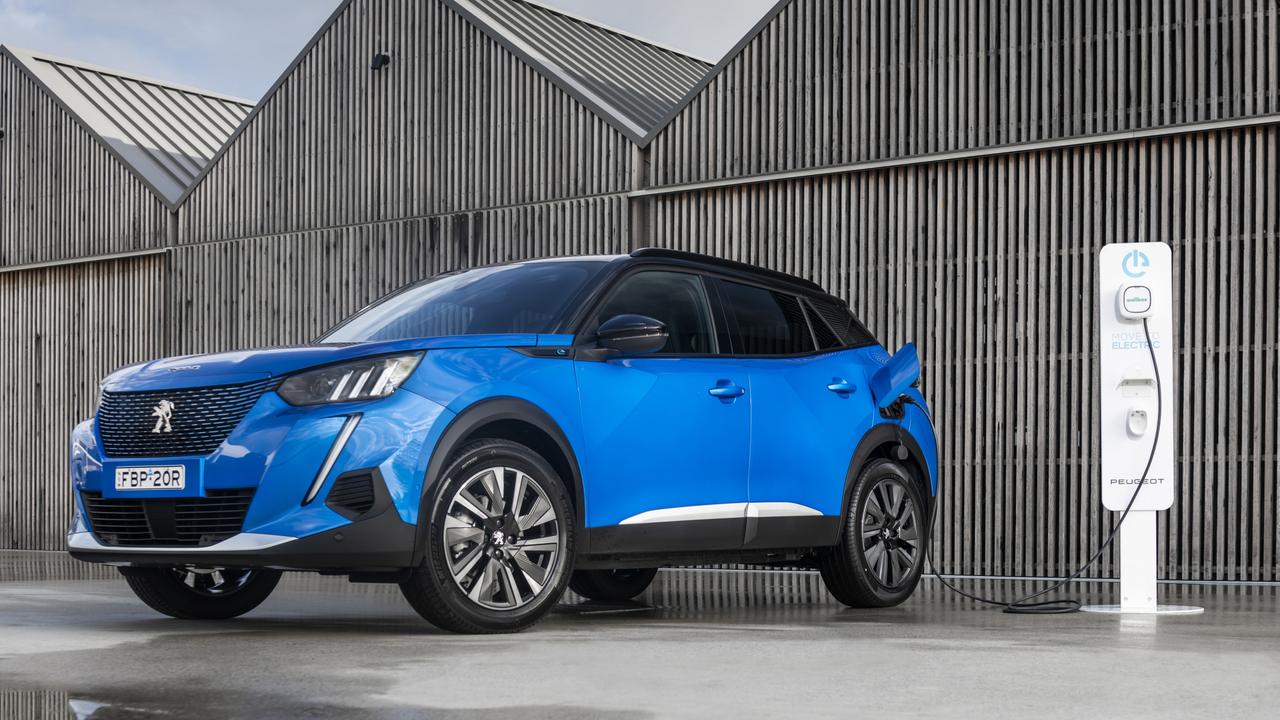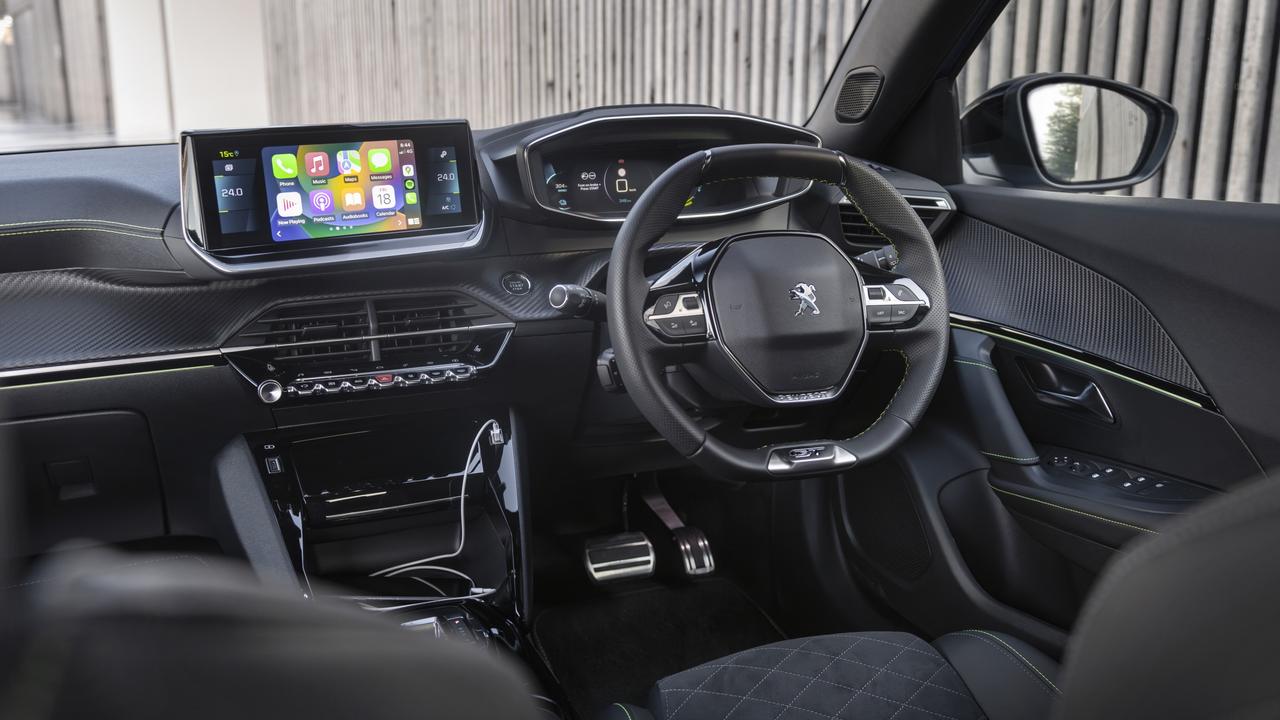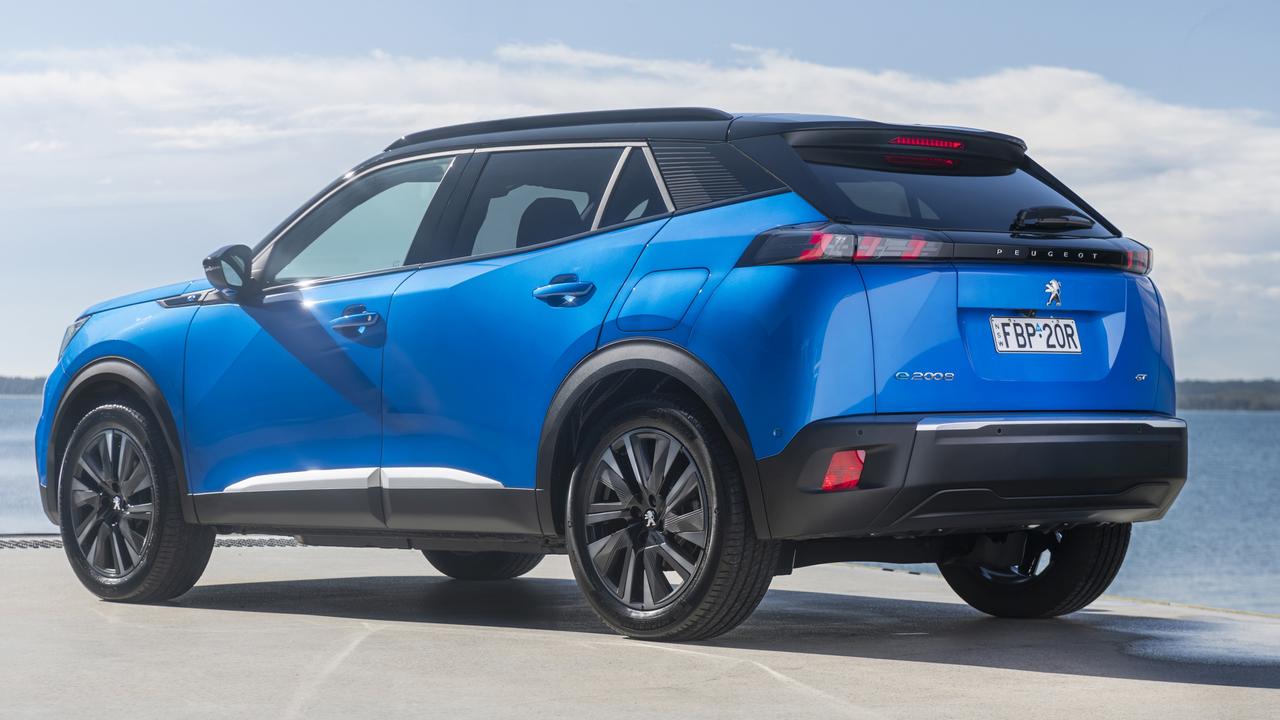Peugeot e-2008 GT review finds electric SUV battles in one realm
The French brand showcases extra style with the e-2008 GT but falls short on performance.

Lifestyle
Don't miss out on the headlines from Lifestyle. Followed categories will be added to My News.
First Peugeot repositioned itself up-market. Now comes technological evolution.
The French brand has begun its electric offensive which started with a van and continues with the e-2008 compact SUV.
Coming next year will be a return to the small hatch market with the e-208, another van called the e-Expert along with the sleek 408 plug-in hybrid. Last month it was also confirmed the e-3008 electric fastback SUV is slated for Australia.
For now the e-2008 is Peugeot’s only full electric offering with a range of 330km.
Only available in one top-shelf GT specification, it starts from $64,000 drive-away.
That price puts it among some strong competition, including the rear-wheel drive Tesla Model Y that has a range of about 450km for similar money, while the Hyundai Ioniq 5 can travel a similar distance from one charge with an asking price circa $68,700.
Peugeot has been somewhat late launching the e-2008 Down Under, but decided to take it when available despite an updated version coming next year.

What do you get?
Contributing to a classy yet standout exterior are 18-inch alloys, body colour grille, black roof and rear “claw effect” lights.
Other key features are a 10-inch touchscreen with Apple CarPlay and Android Auto, 3D satnav and driver instruments, panoramic sunroof along with leather and alcantara seat trim.
Orange is the only complimentary colour. Black and grey hues add $690, while white, blue or red are an extra $1050.
Standard fare also includes a three-phase cord for those who upgrade their facilities at home – which the majority of owners would as it reduces the charging time to five hours from empty to 100 per cent. Use a direct current 100kW public charging facility and it will completely replenish from zero to full in 30 minutes.
A standard household 10-amp plug takes about 24 hours (the genuine Peugeot home power point cord is a hefty $1325).

How was the drive?
Lacking typically brutal electric punch from standstill, the 0-100km/h time is a leisurely nine seconds. That’s only marginally quicker than the turbocharged 1.2-litre four-cylinder engine which powers the other 2008 models.
Sport, normal and eco driving modes are available, but the performance option reduces the range. There is also a ‘B’ button for increased battery regeneration and while it’s not “one pedal” style operation, it helps slow the vehicle when lifting off the accelerator and returns energy into the battery.
Around town the e-2008 is beautifully behaved with a nicely insulated cabin.
Once hitting the hills and bends its abilities are stretched courtesy of body roll with quick changes in direction and the firm suspension setting exposed by poor quality bitumen.
The batteries add substantial weight to the e-2008 which tips the scales at 2030kg – nearly 300kg more than the internal combustion engine variants.
During our test drive the average consumption was 15.8kWh/100km.

Would you buy one?
Kel: Premium looks and the ease of driving are alluring, but the range would still be a factor for me. One daily return trip down the highway and it would be getting close to the capacity which would ensure the onset of the dreaded “range anxiety”.
Grant: Peugeot remains a niche French brand which has managed to maintain a premium appeal. Funky inside and out, the e-2008 still falls short on the latest EV expectations. Chinese options like the small GWM Ora Extended Range hatch can travel 420km with a starting price of $47,600 while the BYD Atto 3 has 480km capacity with a price of $51,000. Throw Tesla, Kia, Hyundai and Cupra options into the mix and it’s difficult to justify the Peugeot.








